Democratization of Change Management: A Good Conversation with Hans Vermaak
February 22, 2018. A cold winter day in Amsterdam. Four thirty-somethings (see box) are in conversation with their colleague Hans Vermaak (56) about his new book: Everyone Changes, Now It’s Our Turn. Not a classic interview, but an unusually good conversation about the field of Change Management, its democratization, professional standards, and how to measure oneself. In this article, we aim to make you feel as if you are sitting at the table, engaging in a conversation with ‘the most influential consultant in the Netherlands.’
After a warm welcome at Stadhouderskade, we take our seats at a sturdy wooden table by the window, overlooking the canal. Simon gets straight to the point: “Here we are with the most influential consultant in the Netherlands.” “Yes, elected by an inner circle and selected by Management Team,” Hans adds immediately. We are not gathered here to celebrate this accolade, but to exchange thoughts with him about the state of our profession. The immediate catalyst for this meeting is Hans Vermaak’s recently published book.
Does Everyone Change?
First, a quick question from Leonard about the title of the book. “Does the phrase Everyone Changes imply that our profession will eventually become obsolete?”
“On the contrary! I only believe that it is very complicated to initiate ten changes for the rest of the organization from a staff department on the third floor, while local issues provide daily value. Try working iteratively on such a local task from three floors up; it simply won’t succeed. What applies to such a staff department also applies to consultants or policymakers. Change is a local skill. […] My plea is: change management should be part of everyone’s profession, just like collaboration or learning.”
Jostein: “So you’re leaning more towards the education of the worker rather than the strengthening of the change management expert?”
“Both. I would like to maintain that tension. Because some people, including you and me, specialize in change management, we can provide insights and language to others: that is ammunition for education. Education of the worker is important, especially if we don’t want to settle for mediocrity that can arise when participation is used as a dogma without setting conditions for expertise.” […] “The fact that you take people seriously in local contexts does not mean you lower the bar. And that makes it exciting: taking people very seriously in what they have to contribute while also confronting them each time to see if the ideas are sharp enough and the behavior strong enough to make a difference.”
Theo is curious about the role of the change manager when everyone claims the field of change management for themselves.
“I brought something along,” says Hans. He takes out two sheets filled with short texts and small drawings marked in various colors. Hans explains that the Scientific Council of the Ooa, of which he is a member, focuses on the trend that change agents are becoming increasingly decentralized in their annual theme. This implies that managers, staff, and consultants must primarily empower others in the organization to become change agents. “They themselves are often no longer the main change agents. You often find them low in the organization, closely involved with their own issues. Real change actually takes place locally, where people are close enough to see what works and can take action themselves. That doesn’t mean that the consultant becomes obsolete. When you empower people decentrally, they naturally ask: how does that work? That’s where you can help as a consultant, manager, or staff member.”
Theo: “The third part of the book focuses on the change agent themselves. This section is relatively larger compared to the issues of serving (part one) and guiding the environment (part two). Did you deliberately give the change agent such a prominent place in your book?”
“That’s correct; I elevate those who tackle change in their own environment to the main character in this book. Before I started writing, I walked around for a year with a notepad, asking: What are the most important lessons? Three different playing fields emerged. The first playing field is that of concrete practice. Before you know it, that slips away constantly, while that is precisely where it happens. That needed to be very prominent. That part required extra effort from me as a writer because that local practice is everyday and can easily be overlooked. Yet the issues there may be small-scale but are precisely complex. We must learn to ‘unpack’ the efficacy of the everyday. We tend to make it too small every time.
On the Other Hand, Part Two, which discusses what is needed in your organization, quickly becomes too vast. All that organizing jargon, plans, structures, and policies. I wanted to stay focused on the essence and had to remind myself: ‘Less, less, less.’ When you honestly reflect on what you, as a person, need on the local playing field to get tasks done, as well as in the organizational playing field to ‘take others along,’ it can create a slight sense of panic. You realize that you need to come from a strong background. From there, part three emerged: How do you deal with your own learning and development, fully aware that you can never know or have to know everything? You still need to come somewhat prepared to perform on multiple playing fields because that is what is expected of you. Or you expect it from yourself…
“A Significant Part of the Job is Collaborating on Issues”
Seen as an Expert
How do you handle the title of the change expert who has a ready-made answer for every issue, Leonard wants to know. Simon makes the question more personal: “How do you handle it in a smaller setting with a client who says: Hans, I’ve read your book. You’re the most influential consultant in the Netherlands. I have a problem, how do I solve this?”
“I have blunt ways and subtle ways. In your example, I would start with the blunt way. No idea. I don’t know you. I don’t know what you’ve experienced. I don’t know what you’re struggling with. And you would never believe me if a standard answer came out of my mouth, as if you were the same as everyone else. Would you trust someone who knows how to solve a problem in five minutes that you’ve been struggling with for 20 years? That’s not credible, right? Such a blunt response can fit when you’re being cornered by your client, and there’s something aggressive about it; you’re put in a corner with the idea: You’ve studied this. Then you have to fight your way out of that corner. A subtle response fits when someone shares dilemmas: There is pressure from above to deliver a change plan within three weeks, while the issues are stubborn. Then I would be inclined to help them legitimize with their leaders that a delay is necessary to make space for diagnosis. I wouldn’t go overboard with a lengthy analysis process because that’s unsellable since the people from ‘above’ are anxious. I would make it an iterative process: we would do an initial diagnosis in three weeks, with a strong suspicion of what the change strategy is, but it wouldn’t be fully developed yet. This iterative approach fits this kind of issue because you only really get to know it by working on it. I would thus go along with the desired pace while simultaneously making diagnosis a fixed part of the task with local change agents in the drivers’ seat.”
Jostein: “Can I make it even blunter?”
“Yes, please!”
Jostein: “For all the people who aren’t Hans Vermaak, what would you advise them? Especially in a setting where the client is increasingly competent, makes their own diagnosis, and says: I don’t want such a process proposal; I want a substantive idea for my issue.”
In addition to the blunt and subtle approaches, Hans invents a third variant: “If they’re that competent, then that’s fine. You can certainly test together—especially if they see you as an expert: That’s great that you’ve figured it out; tell me! Where does your confidence come from that this solution will work? Has it worked in the past? In the best case, they’re spot on, and you help them substantiate that. In other cases, you reveal and problematize the proposed solutions as part of the problem. This creates space to puzzle together again.
And of course, you’re right: with more experience, you gain more authority, regardless of whether you’re good. That’s quite dangerous. Because that’s more of a prison than a liberation.”
“Do you experience that? That as you write more books and become more well-known in the field, it hinders you?” Theo asks.
“Yes, I do. It requires more homework to avoid being placed in expert mode. Demythologizing requires more work as people attribute more authority to you. They do this for good reason, as it alleviates their uncertainty.
A significant part of the job is indeed collaborating on issues. So I have to make extra effort to continue doing that; otherwise, I get cornered again. And I’m not alone: this applies to many people on whom authority can be projected due to position or experience. It requires ‘experts’ to do different homework to not blur their limitations and to display everyday behavior.”
Simon: “That sounds fantastic coming from you…”
“You don’t agree, do you?”
Simon: “No, because you have that reputation, which allows you to easily play with that prison. You can easily create freedom at the client’s table because of your name.”
“That’s true. More experience and reputation give me more legitimacy for that.”
Theo: “The other side is also true, right? You are the most influential consultant, you’ve written books, you walk in, and everyone looks at you expectantly: He knows the solution.”
“The ability to ask questions, to doubt, to investigate is needed precisely to become more certain about what’s going on and your role in it. That’s why I also recognize myself in the four roles that Leonard sees as part of his work practice: consultant, researcher, teacher, and writer. They reinforce each other. The practices in which I consult and research are always richer and messier than the theory I read, write, or teach. And that keeps me honest, as long as I continuously adjust my agenda accordingly. If I don’t do that, I risk getting too caught up in the lecture and training circuit, with the risk of believing too much in my own stories and becoming detached from the lived experience.”
“Would you trust someone who has a solution within five minutes for a problem you’ve been struggling with for 20 years?”
Measuring Yourself
Theo is curious about how Hans evaluates himself as a professional during his work: “On which dimensions do you measure yourself?”
Hans has prepared for this question: “I use four metrics for myself. The first is utility: does what I say or do help? This includes explanatory power (does this explain something?), action value (does this lead to action?), and resonance (is this recognized?). The second is: is it correct? This is about validity and substantiation: not proclaiming personal opinions but doing your homework in terms of reasoning, literature, and so on. The third metric is: is there still discovery here? This concerns creativity and an exploratory attitude. Am I still puzzling? Is it still somewhat original? Have we created something entirely different from it?
According to Leonard, you can do just fine with the first two criteria: “If something is correct and helpful, but not new, isn’t that okay?” Hans responds, “For me, it feels wrong if the third criterion is missing, because I believe that situations are unique. The moment I notice I’m doing the same thing three times, I think: What’s going on here? Am I still looking at what this situation needs? Am I still genuinely collaborating with others? Am I not discovering anything here anymore? That doesn’t feel right. Fortunately, I do little of the same things.”
Leonard asks, “Is discovery a criterion because you enjoy it, or because it serves the issue at hand?”
Hans replies, “If you’ve raised two children and think with the third: we’ll just replicate that, then it goes wrong, I think. It works the same way in organizations: different teams are simply not the same. I believe you have a point that learning is as essential to me as breathing. So there is a bit of bias there. By the way, there’s a fourth metric of discipline and reflexivity: incorporating evaluations and reflections, having someone shadow you, asking clients afterward, describing your experiences and allowing others to critique them. Taking the time and precision for that. I like to advocate that every valuable task has two layers: that of performance and that of learning.”
Leonard asks, “Is there one of these four elements that you really have to pay attention to in practice because it doesn’t come naturally to you?”
After a long silence, Hans responds, “Not anymore.”
“What metric do you have to work hardest on?”
Hans answers, “I think bringing precision to the ‘is it correct?’ part, the substantiation and reading. At the beginning of my career, I would just be gathering information until late at night if I had to present something the next day. However, that’s not good enough for a really complicated issue. I’ve significantly cut back on billable hours, for example, to have enough and timely breaks. That’s especially necessary for issues that require a lot of homework and thus time. I see reading as part of the task. For me, writing a book also falls into this category: of course, I want to reach people, but first and foremost, it’s a learning experience for me to articulate insights and create language. Writing a book also means spending a third less time on deepening my knowledge in a year… That’s just discipline. And it pays off completely in terms of…”
Theo interjects, “Book sales!”
Simon adds, “Lectures, status, titles!”
Hans replies, “I love you guys too, but I don’t always believe it…”

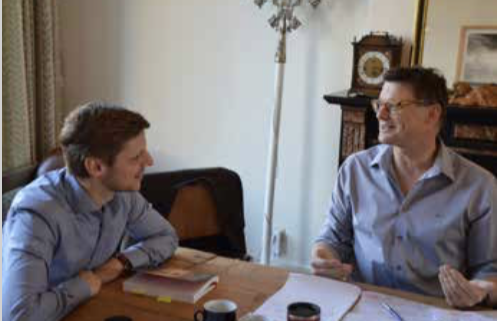
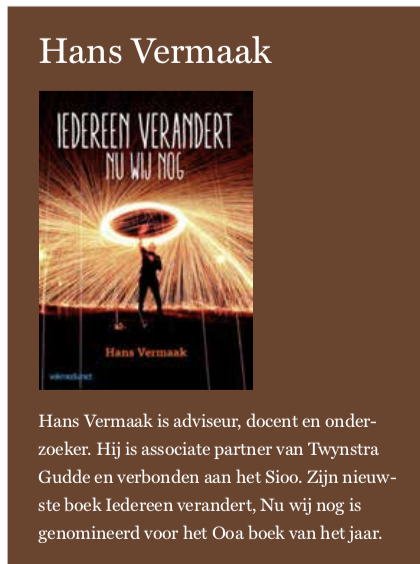
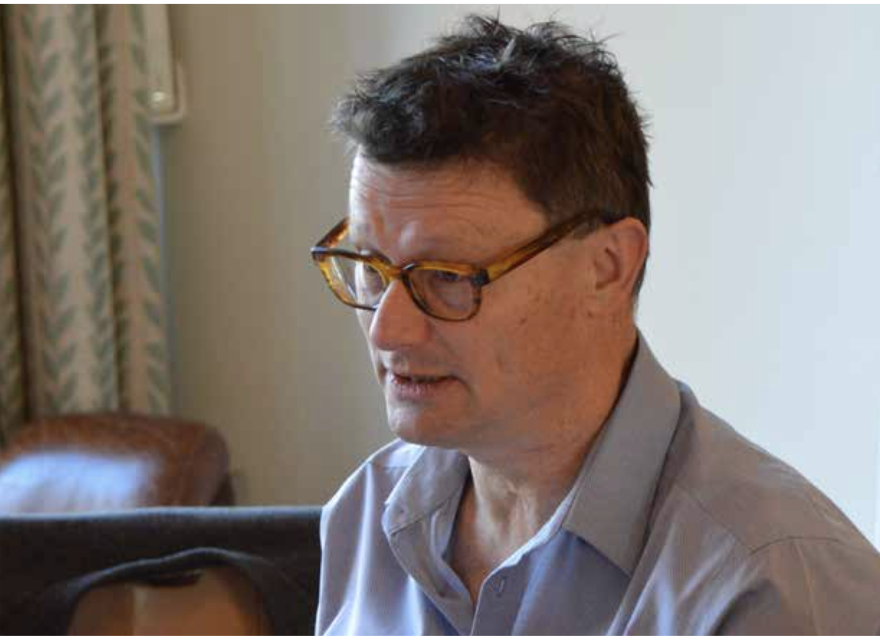
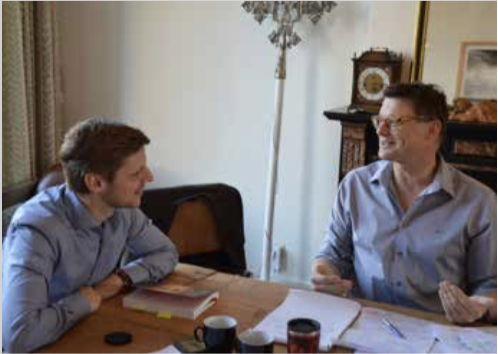
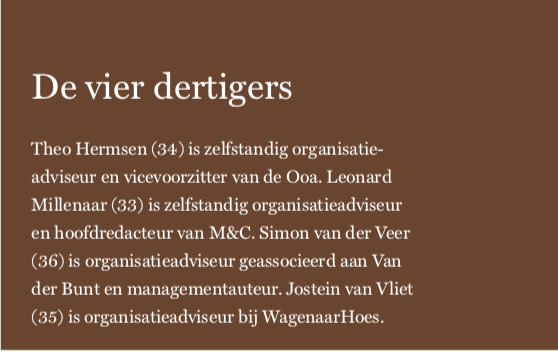
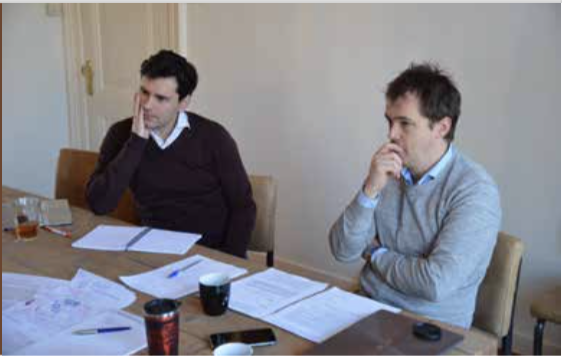
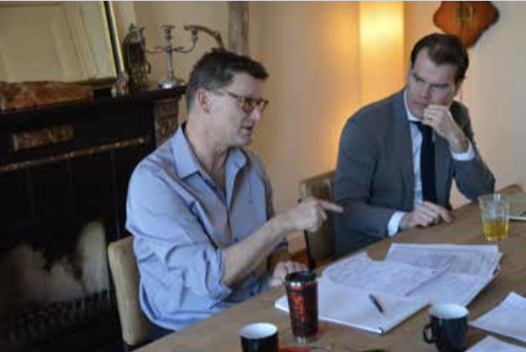
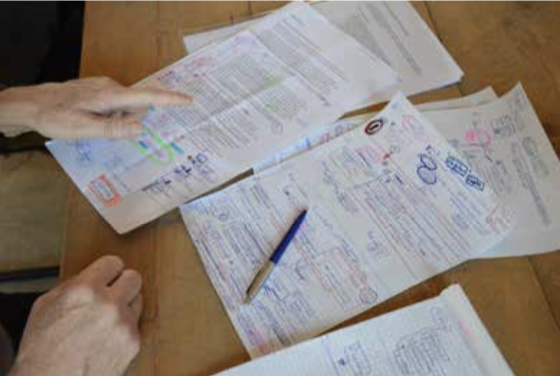
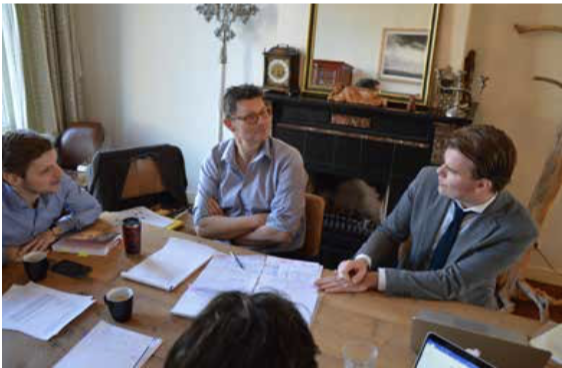


Plaats een Reactie
Meepraten?Draag gerust bij!